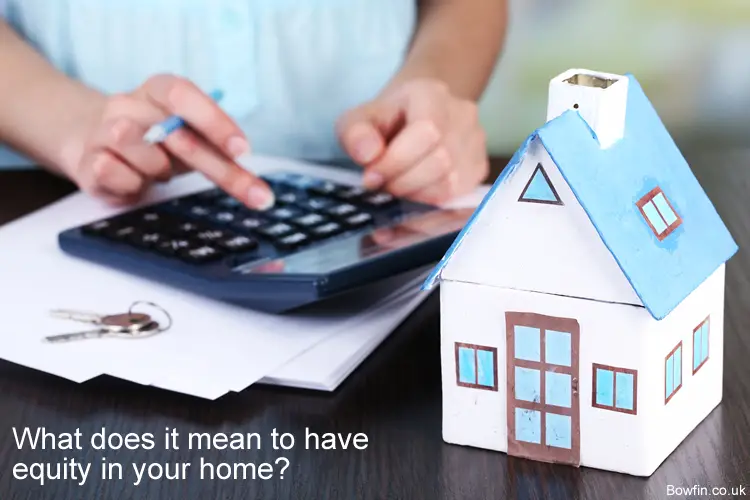
Your home will probably be your biggest asset you’ll ever own. But how much of your home do you actually own if you have a mortgage on it?
What does it mean to have equity in your home? Your home equity is the difference between the fair market value of your property, less what you owe on your mortgage and/or loans secured on your home. Where equity is effectively the value of how much of your home you own. For example, if your home is worth £230,000 with a mortgage of £184,000, your equity £46,000.
But how how much equity do you have?
How much equity do you have in your house?
All you need to do to work out how much equity you have in your home is to subtract the amount you owe on all loans secured on your house from its fair market value.
For example, if you owe let’s say £150,000 on your mortgage. But also that have no other loans secured on your home. Let’s also say you recently had your house valued £250,000.
In this example, your home equity is £100,000.
But how do you know if you have equity in your home. This is especially the case if you haven’t recently had it valued or appraised by an estate agent?
How do you know if you have equity in your home?
Let’s take a look at how to calculate your home equity. This is done using three simple steps:
1. Find your home’s current fair market value
If you don’t want to go to an estate agent, you can use websites or apps such as Rightmove and zoopla house prices. You can use these websites to help you work out what your house is worth.
Or calculate it’s fair market value.
Please note: The price you paid for your home may not be the current value of your home. It could be more or it may be less.
2. Find out how much you owe on loans secured on your home
If you only have the one mortgage on your home, this is a simple case of calling your mortgage lender. Ask your mortgage lender for an up-to-date balance on your mortgage.
If you have other loans secured on your property, you’ll need to do the same exercise for each additional loan secured on your property.
Total up what is owed on all the loans secured on your home.
Please note: Ask about any early repayment penalties. These would need to be added to your loan. This is because if you were to sell your home and repay your mortgage, the penalty would likely kick in.
Therefore, any penalties technically reduce your home equity.
3. Subtract your mortgage balance or what loans are secured on your home from the fair market value
Once you have the current market value of your home. Plus you now konw what you owe on your home mortgage or other loans secured on your home. Simply subtract what you owed from the fair market value.
The balance of these two amounts is your home equity.
Please note: If the total of the loans secured on your property is more than the fair market value of your home, this is what’s referred to as negative equity.
Why is it good to have equity in your home?
Having equity in your home is always a good thing to have. Home equity is typically a homeowners most valuable asset. The equity in your home can be used later in life to either down-size or pass on to another generation when you die.
Property prices in the UK have generally always increased over time. Property prices have in general doubled every ten years. This means that your home equity would increase as your house value increases.
Arguably home ownership can be seen as a long-term strategy for building wealth. Your home is almost like a fixed piggy bank of savings.
I hope you’ve got something from reading this article on what does it mean to have equity in your home
If you’ve got something from this article on what does it mean to have equity in your home please share it on your favourite social media site.
Also, if you have any questions, please feel free to comment below too. Alternatively, if you need more help, please feel free to contact us on our contact us page here. Or join the discussion and ask your question in the property forum.




